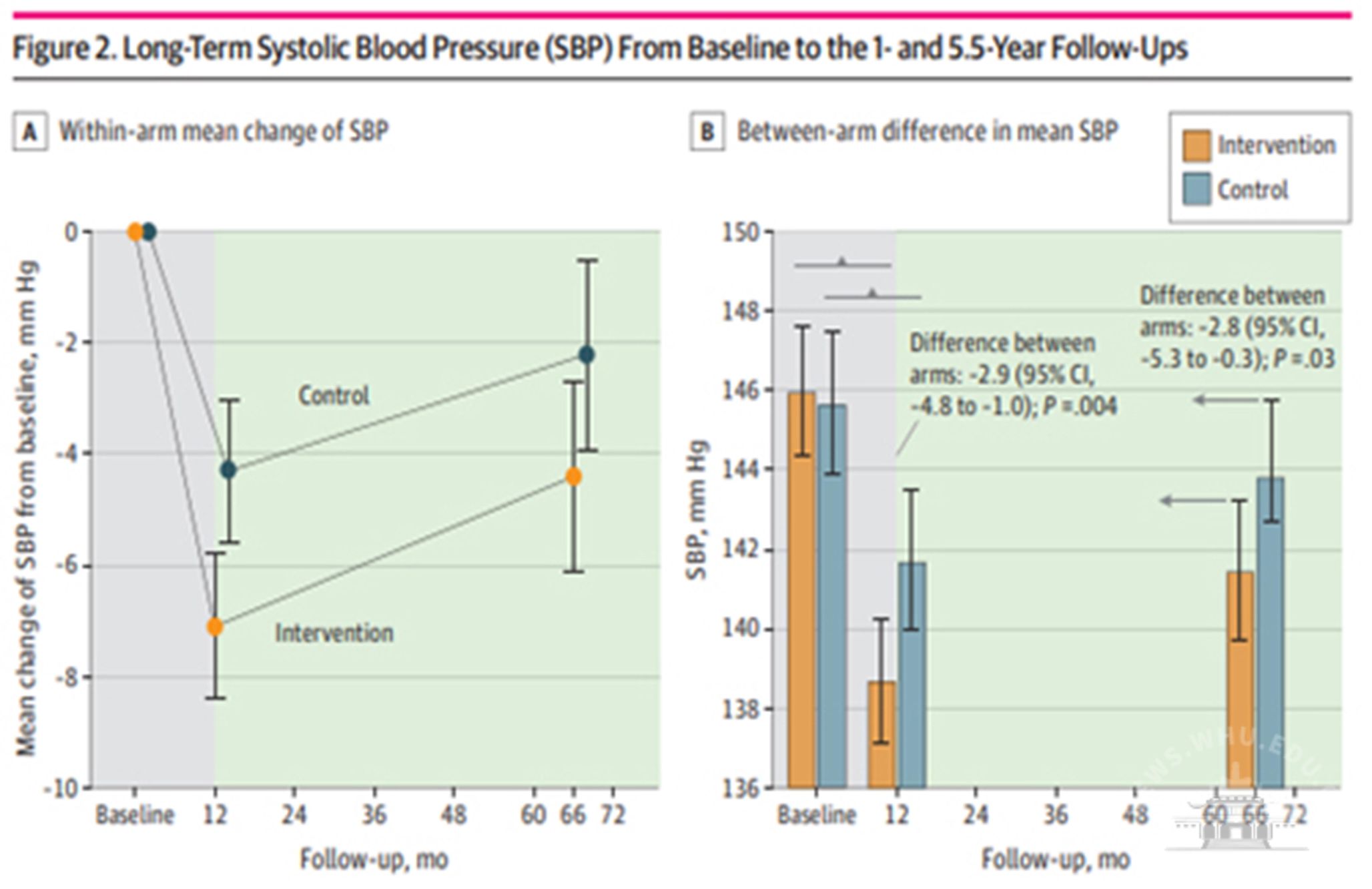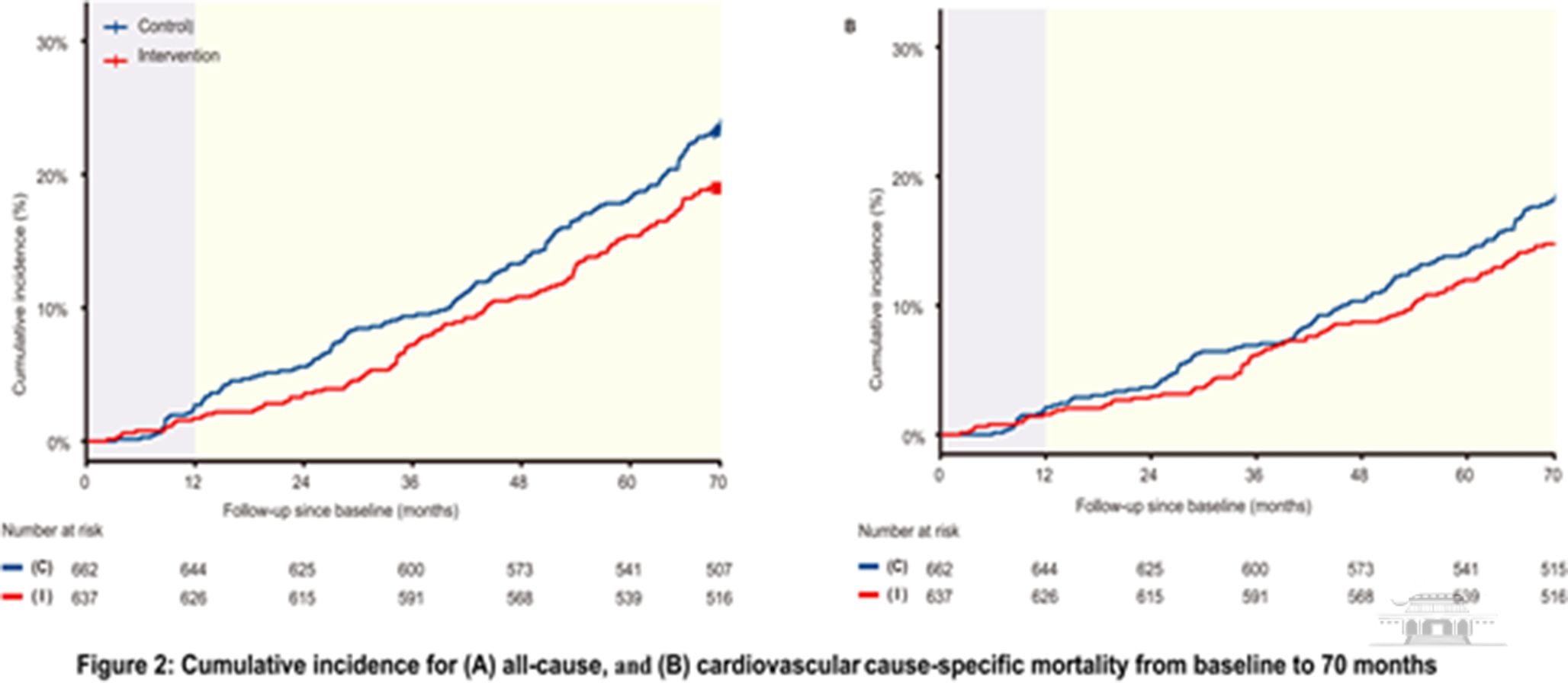A research team led by Professor Yan Lijing of the School of Public Health at Wuhan University (WHU), in collaboration with the Chinese Academy of Medical Sciences, Peking Union Medical College, and Duke Kunshan University, has published studies in JAMA Network Open and PLOS Medicine. Their findings confirm that the System-Integrated Technology-Enabled Model of Care (SINEMA) effectively lowers blood pressure, reduces stroke recurrence rates, and decreases long-term mortality risk.

Long-term systolic blood pressure from baseline to the 1-year and 5.5-year follow-ups.
The study integrates mobile health technology with primary healthcare services through village doctor training, smart follow-ups, and health education for patients. A total of 1,299 stroke patients from 50 villages in Nanhe county, North China's Hebei province, participated in a one-year intervention followed by six years of follow-ups.
Results showed that patients in the intervention group had an average systolic blood pressure 2.8 mmHg lower than those in the control group. Stroke recurrence rates decreased by 23 percent, with an absolute risk reduction of 6 percent. Long-term follow-up data further confirmed that the intervention effectively reduced stroke recurrence and ultimately lowered mortality rates.

Cumulative incidence for (A) all-cause and (B) cardiovascular cause-specific mortality from baseline to 70 months.
This research provides crucial evidence for primary healthcare interventions in resource-limited areas, highlighting the importance of strengthening community healthcare services and leveraging mobile health technology to reduce the danger of strokes.
Links to paper:
https://jamanetwork.com/journals/jamanetworkopen/fullarticle/2828032
https://journals.plos.org/plosmedicine/article?id=10.1371/journal.pmed.1004564